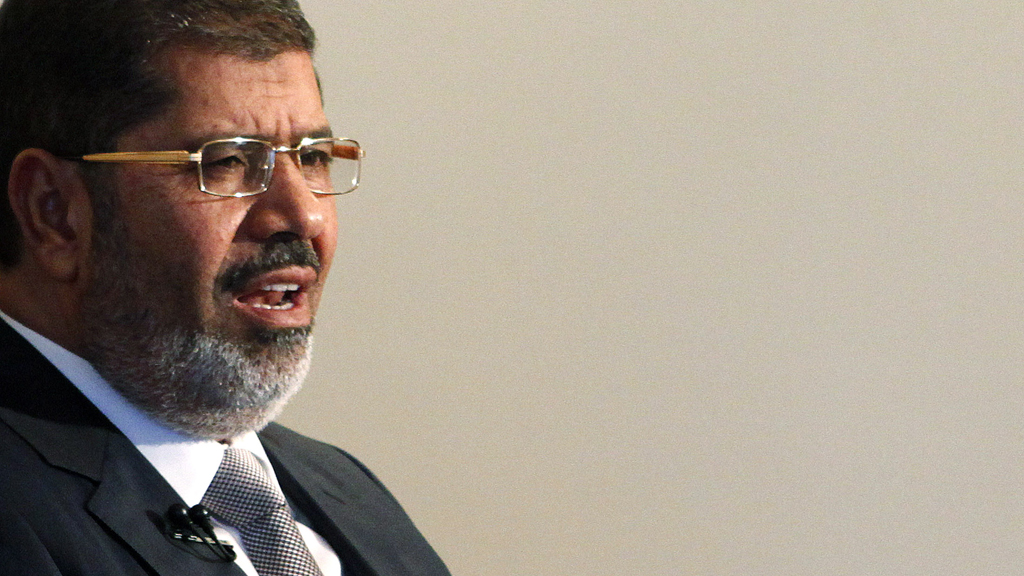Egypt pressures Syria as government jet downed
Syria walks out of an international summit after Egypt’s president uses his first visit to Iran in 33 years to condemn the Syrian administration as “an oppressive regime that has lost its legitimacy”.

President Mohamed Morsi’s comments, made at a meeting of the Non Aligned Movement in Tehran, angered the Syrian regime, already on the defensive after rebels claimed to have brought down a government jet this morning.
The Syrian delegation walked out following his speech, with foreign minister Walied al-Moallem describing the comments as “an interference in our internal affairs” and an “incitement…to continue the shedding of Syrian blood”.
Mr Morsi said: “The bloodshed in Syria is our responsibility on all our shoulders and we have to know that the bloodshed cannot stop without effective interference from all of us.
“Our solidarity with the struggle of the Syrian people against an oppressive regime that has lost its legitimacy is an ethical duty as it is a political and strategic necessity.
“We all have to announce our full solidarity with the stuggle of those seeking freedom and justice in Syria, and translate this sympathy into a clear political vision that supports a peaceful transition to a democratic system of rule that reflects the demands of the Syrian people for freedom.”
With the presidency of the Non-Aligned Movement being transferred from Egypt to Iran, the 2012 summit was held up by both nations as a chance to assert their power and profile on the global stage but for a domestic audience.
Egypt has refused to visit its Middle Eastern neighbour since the Iranian revolution in 1979, and President Mohamed Morsi is keen to mark his nascent leadership as distinct from the previous one. The trip to Tehran gave ample opportunities for domestic press to hail his "historic" act, with further attention to his presence drawn by his comments on Syria.
For Tehran, hosting the summit gave the administration a chance to claim that it was now in the "limelight of the world's media", but this time, not because of its nuclear ambitions.
Iran will also seize the opportunity to become a bigger player in diplomatic moves to end the conflict in Syria. In opposition to the UN, which will criticise President Mahmoud Ahmedinjad's administration for its human rights record, Iran will argue that the Non-Aligned Movement has a greater role to play in diplomatic affairs, and will propose an alternative peace plan for Syria involving a ceasefire and three-month reconciliation talks.
In Syria, a fighter jet was shot down over the northwestern province of Idlib, near the Turkish border. The Free Syrian Army claimed victory following the incident, saying later that they had captured and arrested the pilot.
Video footage appeared to show smoke in the sky and a person parachuting down, three days after rebels claimed to shoot down a Syrian army helicopter over Damascus.
But the Syrian government denied that they had suffered defeat, with a Syrian military source claiming: “No Syrian warplane, at any rate, has been downed in Idlib countryside.”
The developments in Syria and at the meeting came a day after President Assad claimed his regime was on the road to victory against the rebels.
In an interview broadcast on Syrian state television, he said his armed forces will need time to defeat the rebels, claiming that his army is fighting a regional and global war.